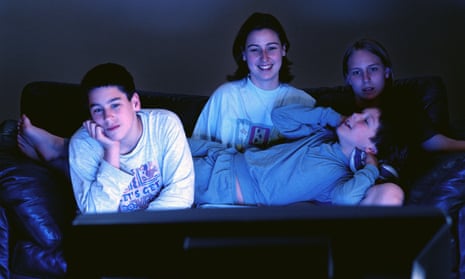You may have seen one story of disability discrimination in the news this week: 19-year-old Kyle Gunn, who has cerebral palsy, was told he would fail a journalism course because his disability prevents him from writing shorthand. This is clearly appalling, and the outcry that developed means the course is going to be reviewed. But as Wednesday’s report into the lack of diversity in British broadcasting shows, Gunn’s exclusion as a future disabled journalist is part of a much bigger problem in this country.
Disabled people are the most under-represented minority group in broadcasting, according to a provisional report by Diamond, a project set up in 2015 by the major broadcasters – including BBC, ITV, Channel 4, and Sky – to monitor diversity in the industry. We make up just 6.5% of onscreen staff and 5.5% of off-screen staff in television. This is dire, considering how many disabled people there are in Britain: 18% of the national population have a disability. That’s about 12 million people.
Broadcasting is notoriously a closed shop to marginalised groups – the Diamond report also found the over-50s are the other heavily under-represented group, as well as people from black, Asian or minority ethnic (BAME) backgrounds working behind the scenes – but these figures are a particularly depressing read for hopes of tackling the exclusion of disabled people.
Representation matters, both on and off the screen. Which groups are given a position of power shapes what the nation sees: if broadcasters aren’t from a diverse background, it’s not difficult to see how this affects the stories that are covered (and how they’re told). This is the case for workers off-screen as much as on but the impact of a visible presence of minority groups shouldn’t be underestimated: the faces we see on television shapes the perception of what sort of country we live in.
Journalism course review after backlash over disabled student. @BBCScotlandNews https://t.co/QhmTJwZmOH
— Kyle Gunn (@Kyle_Gunn97) August 23, 2017
Turning on the BBC and seeing a wheelchair user read the news normalises the fact people from minority backgrounds are integral to our society. That’s something particularly important at a time when the Equality and Human Rights Commission is warning disabled people in Britain are “increasingly marginalised and shut out of society”. It’s also a huge waste of talent not to hire disabled people: unless you believe white, non-disabled, middle class men are uniquely skilled at broadcasting, any argument that “only merit matters” falls decidedly flat.
Broadcasters routinely express commitments to increase diversity, and it’s clear that efforts are being made – the BBC, for one, is launching schemes to recruit, train and develop journalists with disabilities – but I can’t help but think there needs to be a radical shift in how we treat disability, particularly in industries that are competitive, advantaged, and somewhat stuck in their ways.
When I did a work placement as a young wannabe journalist, I had to live out of a hotel for a week because of access problems. Despite supportive employees, as a wheelchair user I couldn’t crash on the sofa of friends in London, and fatigue meant I couldn’t physically do the four-hour return commute each day (the same problem occurs if you don’t know anyone in London, of course). I took the gamble of using £500 of my student loan to pay for it because I knew it was a necessity to get my foot in the door (in the end, I was lucky enough to get a bursary from my university to pay it back).
It’s these sort of practical measures – for example, ensuring young disabled people have affordable, accessible accommodation while training – that will help bring disabled people into the industry; things that are so mundane non-disabled employers may not think of them (difficulty with transport, for instance, is a key barrier to employment for disabled people).
Thinking seriously about introducing flexible working hours (also useful for eradicating the disability pay gap) or job sharing – as the Welsh Assembly did this week – would further help.
But we also need to tackle cultural attitudes around disability that, even if subconsciously, hinder our ability to get disabled people into the workforce. Papworth Trust found nearly four in 10 people think of disabled people as less productive than non-disabled people, while three-quarters believe we need to be “cared” for – which hardly helps disabled people are to be seen as capable broadcasters.
This isn’t only a problem for the creative industries, of course: they are issues that plague employment of all types. Disabled people are used to being shamed into “getting a job”, and having their out-of-work sickness benefits and employment support cut in the process. But they are routinely left to cope with the barriers to work alone. A decade from now, I hope Britain broadcasters – and other industries – have disabled people front and centre. But it is action, not platitudes, that will get us there.

